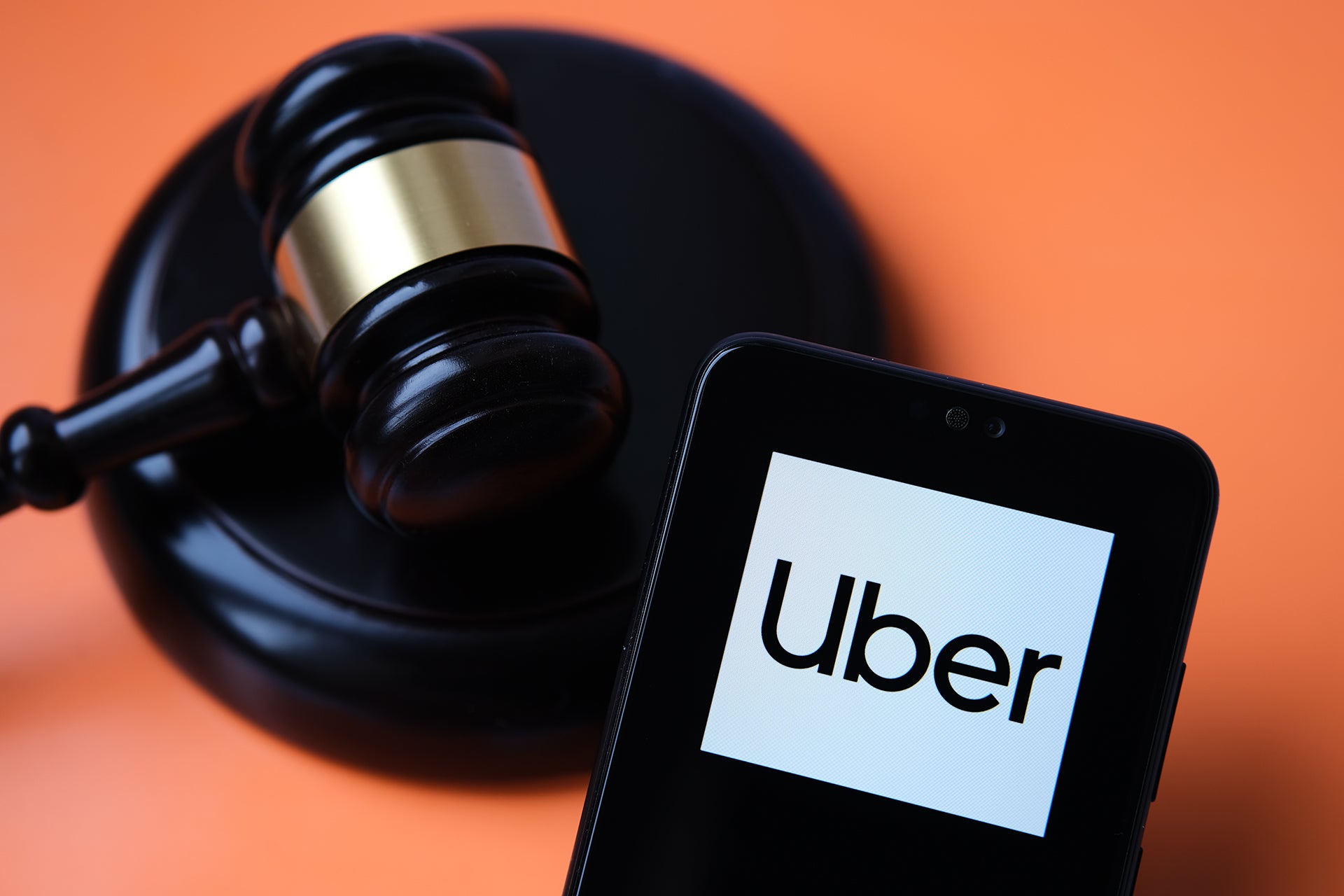
Uber and Lyft have crashed into another roadblock on their way towards profitability after a judge ruled that Proposition 22, a recent piece of Californian employment law, is “unconstitutional”. However, this won’t stop gig economy companies’ attempts to prevent drivers from being classified as employees.
Proposition 22 was a ballot initiative which passed along with the November 2020 state election, and as such was decided not by the state legislature but by the Californian voters. It was a response to Assembly Bill 5, which was passed in 2019, which required gig economy workers such as Uber drivers to be reclassified as employees – not self-employed workers – at the companies they were working for.
Uber, Lyft, DoorDash and Instacart didn’t like Assembly Bill 5, fearing it would cut away a massive chunk of their margins. The ride-hailing companies had previously warned that they’d pull out of California if it was passed, arguing that classifying drivers as employees would make their running costs unsustainable.
The gig economy companies put more than $220m into their campaign in favour of Proposition 22. It has been estimated that the campaign against it had approximately $19m of funding, mostly from union and labour groups. In November 2020, 58% of Californian voters voted to pass the law, meaning gig economy workers would not be entitled to minimum wages, healthcare and other work benefits granted to those classified as employed.
However, the law has now been overruled by Alameda County Superior Court judge Frank Roesch who has ruled that Proposition 22 is unconstitutional and unenforceable. He made the ruling after the Service Employees International Union (SEIU) and several drivers brought a lawsuit against Proposition 22, the LA Times reported.
Roesch decided that Proposition 22 infringes on the power of the legislature explicitly granted by the state constitution to regulate compensation for workers’ injuries.

US Tariffs are shifting - will you react or anticipate?
Don’t let policy changes catch you off guard. Stay proactive with real-time data and expert analysis.
By GlobalData“In short, if the people wish to use their initiative power to restrict or qualify a ‘plenary’ and ‘unlimited’ power granted to the legislature, they must first do so by initiative constitutional amendment, not by initiative statute,” he said.
“Proposition 22’s Section 7451 is therefore an unconstitutional continuing limitation on the legislature’s power to exercise its plenary power to determine what workers must be covered or not covered by the worker’s compensation system.”
He also challenged how the law briefly proposed restrictions in drivers’ right to unionise, arguing that it ran counter to state law stipulating that each proposition must be subject to one issue and one issue alone.
“It appears only to protect the economic interests of the network companies in having a divided, ununionized workforce, which is not a stated goal of the legislation,” the judge wrote.
The consequence of the ruling is that the entirety of Proposition 22 could get thrown out as ballot initiatives cannot be amended once they have been voted in. It’s basically a everything-or-nothing situation.
“The court finds that Section 7431 is unconstitutional because it limits the power of a future legislature to define app-based drivers as workers subject to workers’ compensation law,” the judge wrote.
But the race isn’t over as Uber has already vowed to appeal the ruling, saying it “ignores the will of the overwhelming majority of California voters and defies both logic and the law.”
Elsewhere, Bob Schoonover, president of SEIU California State Council, told The Verge, that he welcomed the ruling.
“The gig industry-funded ballot initiative was unconstitutional and is therefore unenforceable,” Schoonover said. “Companies like Uber and Lyft spent $225 million in an effort to take away rights from workers in a way that violates California’s Constitution. They tried to boost their profits by undermining democracy and the state constitution. For two years, drivers have been saying that democracy cannot be bought. And today’s decision shows they were right.”
Proposition 22 being ruled unconstitutional comes just weeks after a coalition of gig economy companies officially took the California playbook on the road, trying to repeat their victory in Massachusetts.
Given that California laws are often seen as precursors for other states on matters of technology, the ruling could put the gig economy companies’ efforts across these battlefronts in jeopardy too.
The news should also be seen in an international context, with similar Supreme Court rulings and legal battles taking place across the globe as legislators and regulators are slowly catching up with gig economy businesses.
“The gig economy has been shaping work in the absence of traditional forms of trade unionism, like collective bargaining,” researchers wrote in a a recent GlobalData thematic research report on the Future of Work.
“In addition, regulatory structures around the world were not written with phone-based apps and platform work in mind. This has hindered the ability for gig workers to improve their conditions and wages.”







